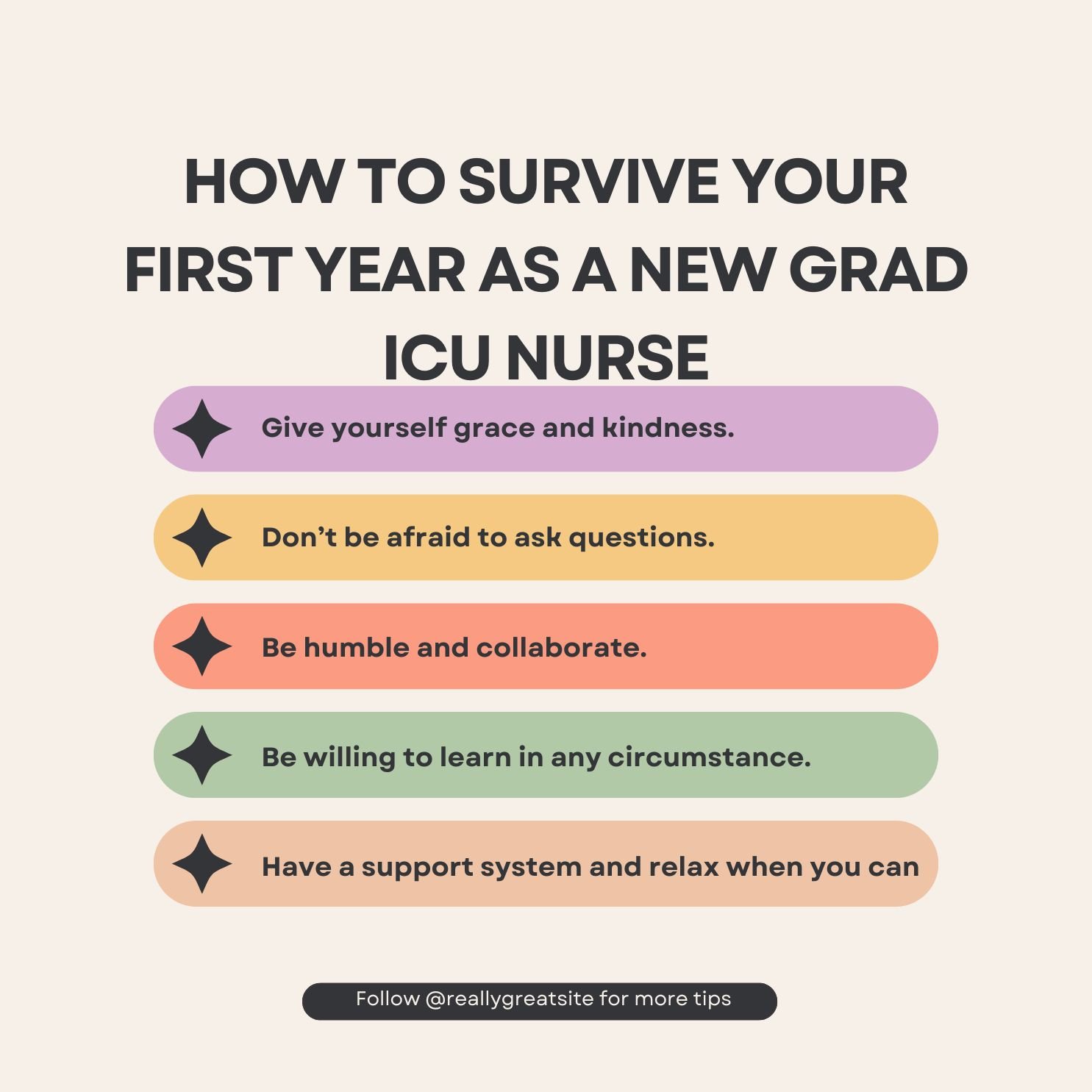Being a new grad RN in the ICU is hard… let’s be honest.
The margin for error is low plus there are updated research and clinical practice guidelines that can be overwhelming while navigating and gaining the necessary skills to become comfortable your first year. I was there. I had the story in my head that I needed to be good enough. I started my ICU nursing career in a mixed 27-bed Med/Surg/Neuro/Trauma ICU in a 400 bed Level II Trauma hospital in Tacoma, WA. It didn’t help when I started, the critical care nurse residency was not the greatest and my desire to learn all things ICU plus neuro and trauma critical care bombarded me. On my off days , I read and studied because I felt like I needed to know all the things. I was very wrong. I learned that you can try to read ALL the books, articles, and watch all the videos, but your experience must be coupled with the learning. It is best served when you supplement your knowledge on top of gaining the necessary clinical exposure. I bought so many books, I swear, my union dollars we being utilized so much! I had to learn the hard way that I should have enjoyed the process and took in every moment. Now, I am 8 years as a ICU/CVICU nurse and I can tell I wish I could tell my younger nurse self that you are going to go far and that you should have added more grace in the process. So here are my tips for all my fellow new grad RNs in the ICU
1.) Give yourself grace and kindness. You will make mistakes and yes, you are naturally going to feel “dumb, stupid, and embarrassed.” It is okay if you do not know. If you look up the information, ask your peers, and collaborate with those around you, you will go far. More brains are better than one.
2.) Do not be afraid to ask questions! I always tell all the nurses I precept. Asking questions are part of the process. You will learn about those nurses who love asking questions and those nurses who do not.
3.) Be humble and collaborate. We are here to do one job and that is to make sure that our patients receive the best, evidence-based, quality-centered, culturally competent, patient centered care. Whether you have 1 year or 10 years of experience, your nursing care boils down to how well your patient is treated. You nursing care is a reflection of how you are. Remember that.
4.) Be willing to learn in any circumstance. In any situation take those experiences (good or bad) as learning opportunities. From nurses being passive-aggressive to horrible codes, let those experience not harden you but guide you to be a better nurse and problem solver.
5.) Have a support system and relax when you can. Leave work at work. I know that it is easier said that done but you have done at that you can. Despite the tools and resources you had, you did everything. Do not beat yourself up if the outcomes did not go as planned. in the ICU environment, the stability of patients change, so we must remain calm, be attentive, and be flexible. Talk to your significant other, parent, spouse, work-wife, work-husband, friends, etc just to vent and talk about how shitty your shift went. This helps just blow off some steam and debrief. When you do this, this allows different perspectives to help you see events and situations in different lenses. Make sure you take time off too. If you are back tonight and lets say you had a shitty night, just call out. The unit can survive and make adjustments. You do not owe the unit anything. Plan those vacations, AirBnB stays, getaways, etc. Just make sure you do not think about work! I know its hard but what really helps if you do a ten minute deep breathing and focus your thoughts on nothing. Do not let anything hinder your mind. Girl, trust!


